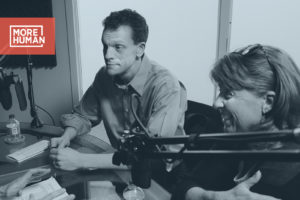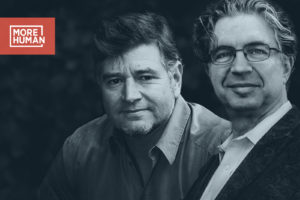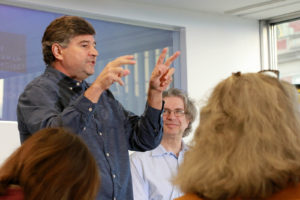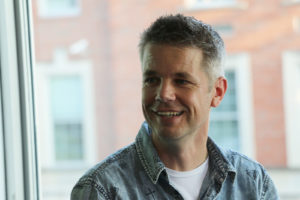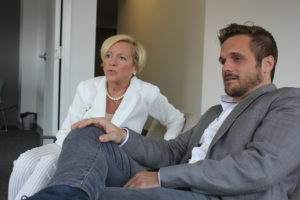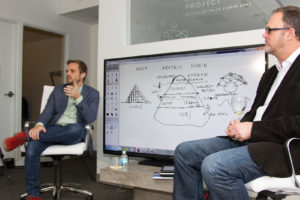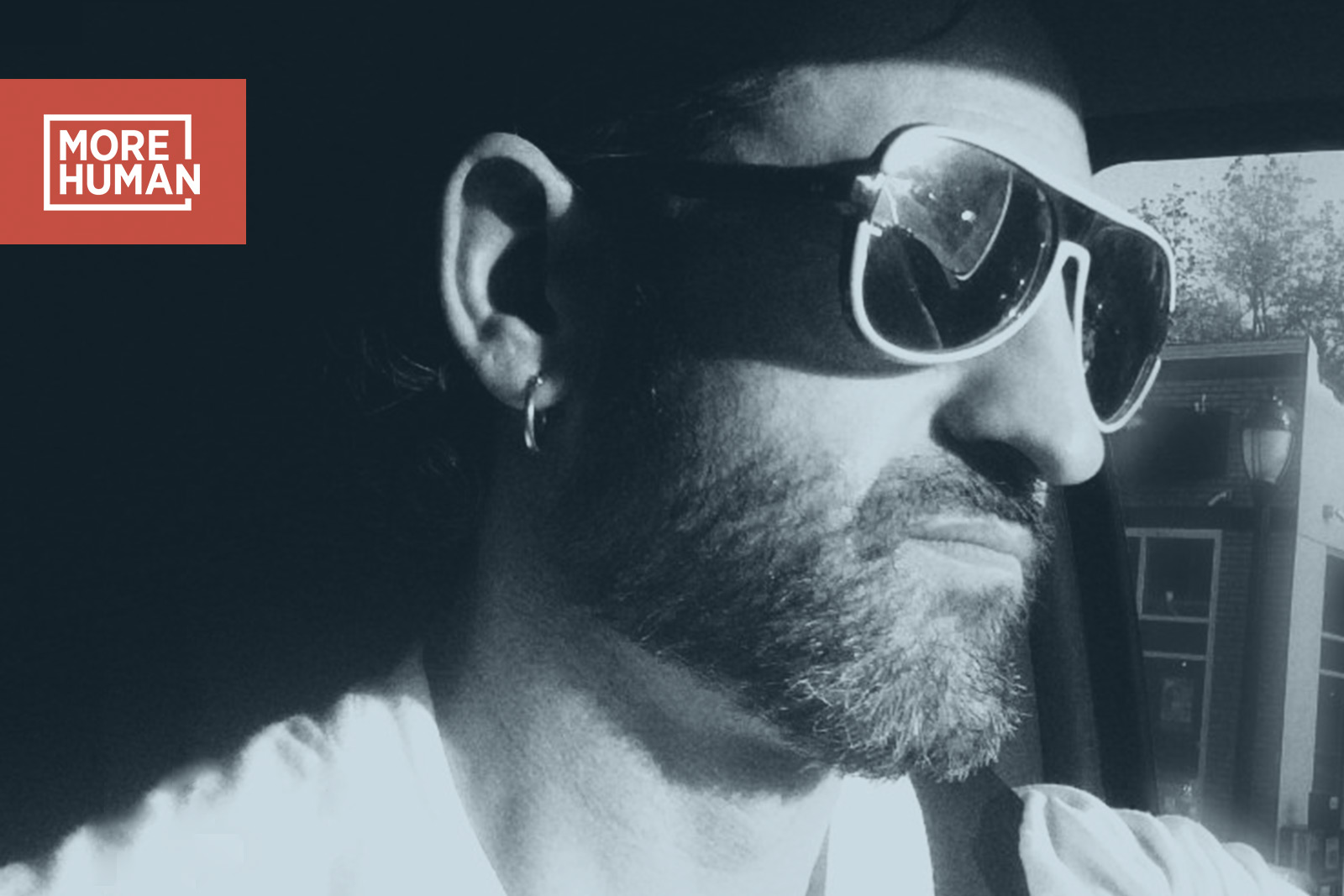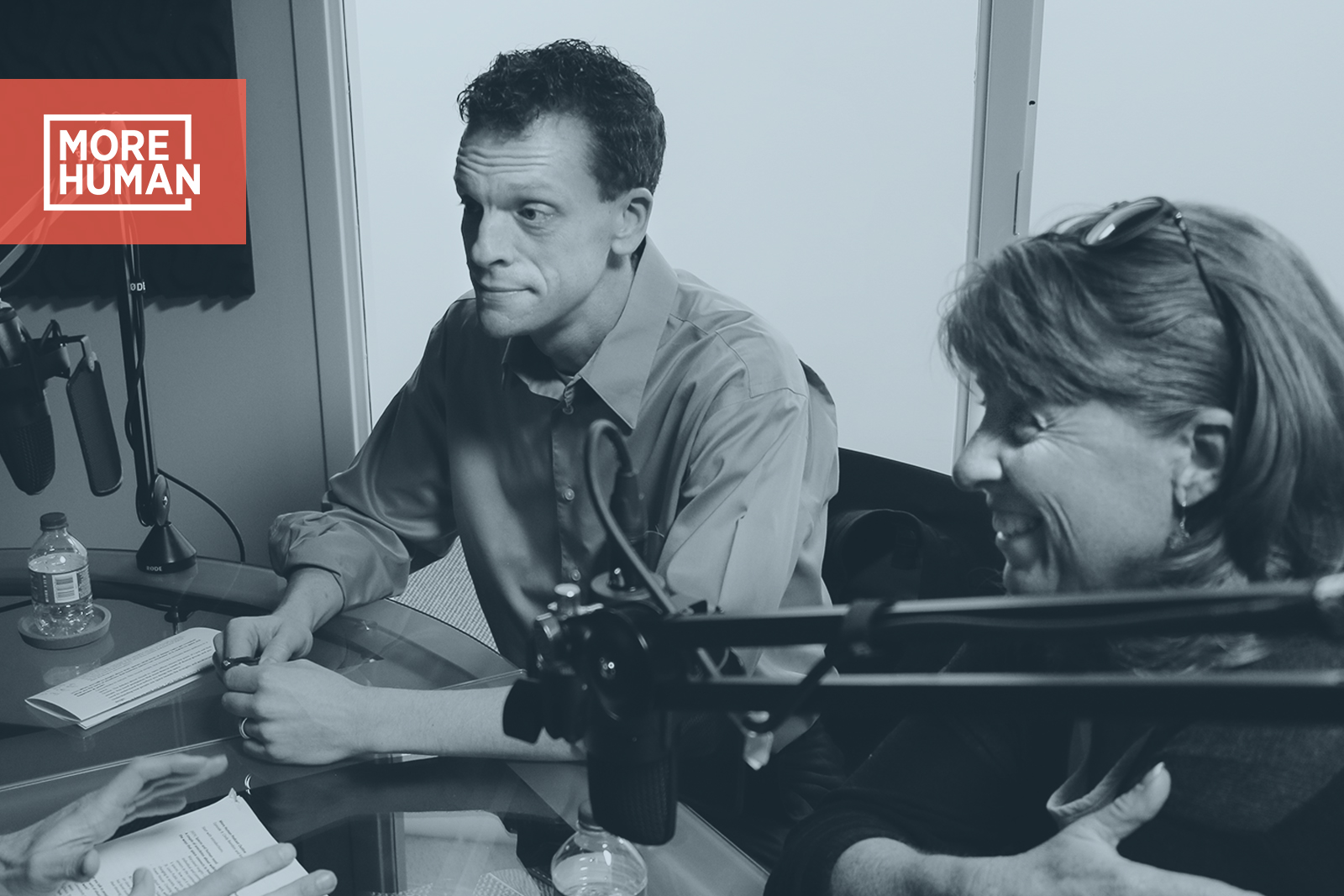Laurence Hillman and Richard Olivier: The Human Language for Leadership (Ep. 8)
You have probably taken one of those Left Brain Versus Right Brain Tests online.
And you found yourself running down a rabbit hole of pop psychology and leadership videos with caricatured claims about the hemispheres: The right is creative and emotional, the left is analytical and logical.
This has gone on for so long now that most neuroscientists have left the question about the differences between hemispheres alone. However, it turns out that it is a valid question tied to our psychology, philosophy and our ability to understand our humanity: Why do we have two brains? Are we of two minds?
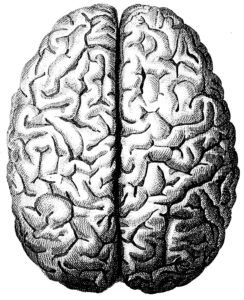
The short answer is: Yes.
Iain McGilchrist, a psychiatrist and author of The Master and His Emissary: The Divided Brain and the Making of the Western World, reviewed decades of research on the behavior of humans who had various levels of damage to either hemisphere. His work shatters some preconceived notions and offers new understanding. McGilchrist found that the left brain deals largely with the tactile or tangible — it is focused on what is immediately available. It is concerned with what tasks can be completed. The right brain deals mostly with the abstract. Most of its processes are not easily articulable. It is responsible for giving context and meaning to the things that are happening in the left hemisphere.
Simply put: Left brain sees a tree. Right brain unpacks an understanding of the concept of forest.
According to McGilchrist, we live in an increasingly left brain world. A world that is characterized by the tangible. You can see this all around you. In particular with business. We are bottom-line, outcomes focused.
The danger for leaders in this world of overly left-brained focused thinking is that it is not optimal for accelerating change. We live in a world that is far less predictable and stabilized. So the ability to draw upon our more abstract and meaning-making part of cognition becomes critical.
That is why, for Episode 8 of More Human, we have a couple of experts at navigating the unknown or imaginal space of human cognition — the part of humans that can more easily adapt to change. The two guests are:
Richard Olivier is the creator of something called Mythodrama, and the author of Inspirational Leadership. He has a background in the arts as a theater director and it is worth mentioning that he is the son of the famed British actor Sir Laurence Olivier.
Laurence Hillman is a consultant in archetypal psychology and the author of Planets in Play. It is also worth mentioning that Laurence is the son of James Hillman, who studied with the infamous Carl Jung and founded archetypal psychology.
Check out this episode to learn a scaffolding for describing the parts of human cognition that are harder to define and, more than ever, critical for business leaders.
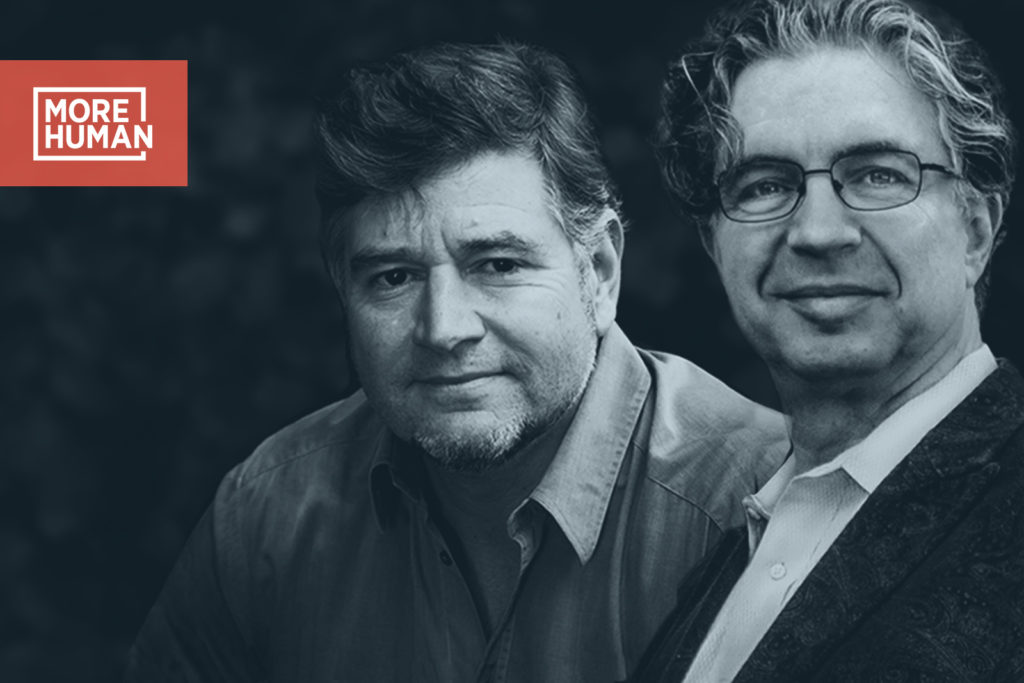
Who is in this episode:
Background:
Be Human Salon featuring Laurence Hillman and Richard Olivier
Extra Goodies:
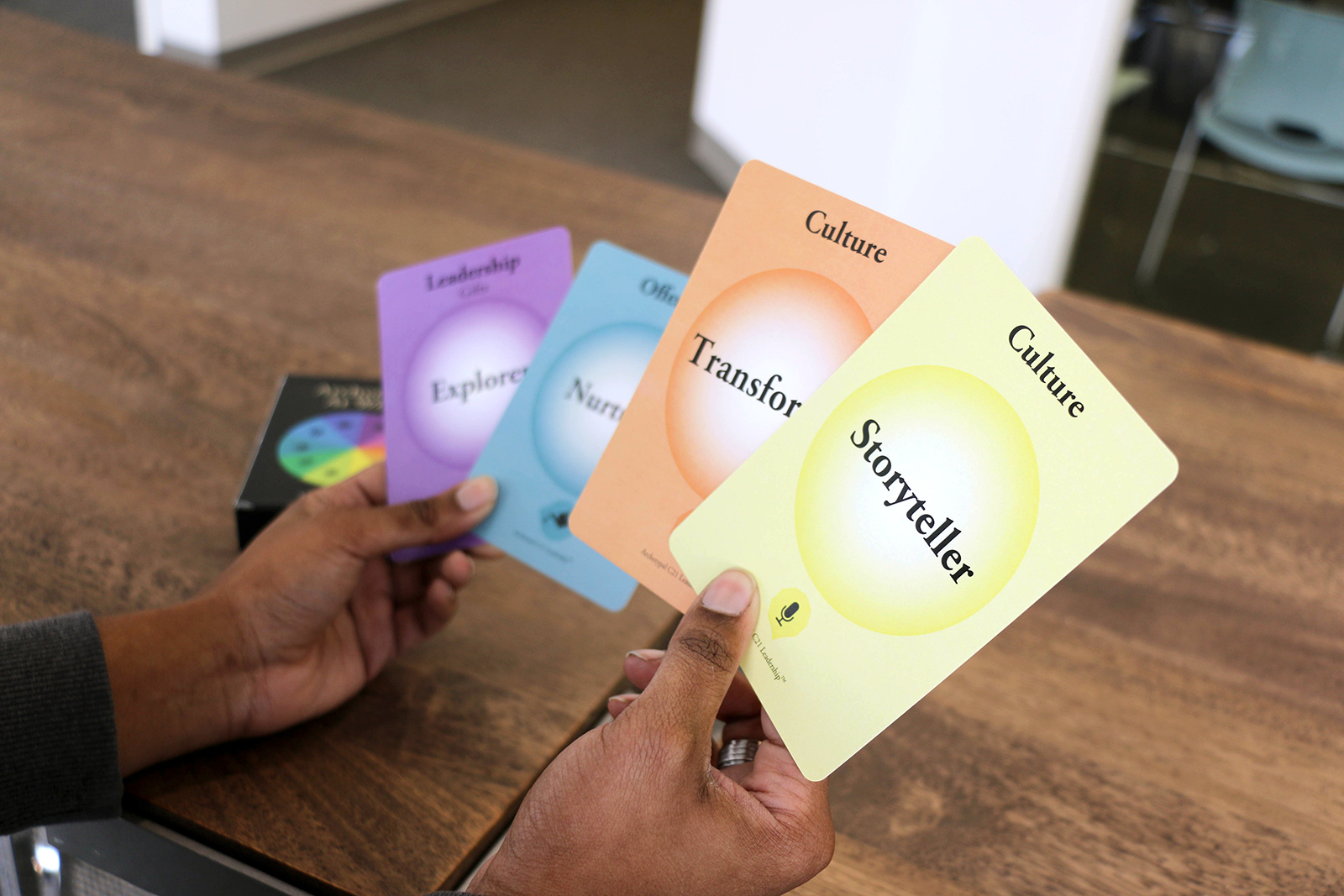
Outline of the Common Leadership Archetypes
Subscribe here
iTunes • Soundcloud • Stitcher • Youtube
Music Credits:
Shofunkan by Snarky Puppy
Night Owl by Broke for Free, Creative Commons
Heliotrope by Blue Dot Sessions, Creative Commons
Capcake Marshall by Blue Dot Sessions, Creative Commons
Nothing at All by Blue Dot Sessions, Creative Commons


